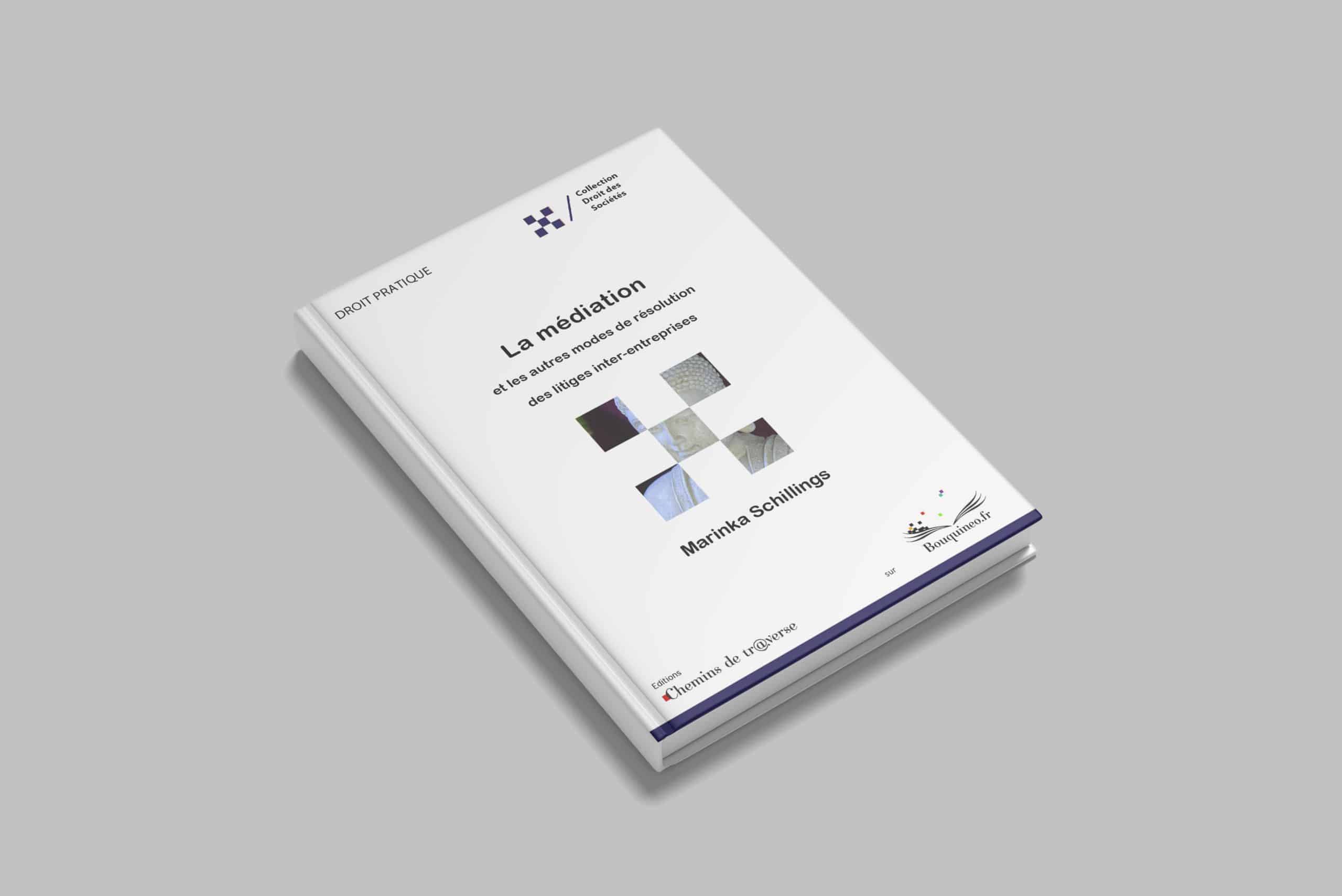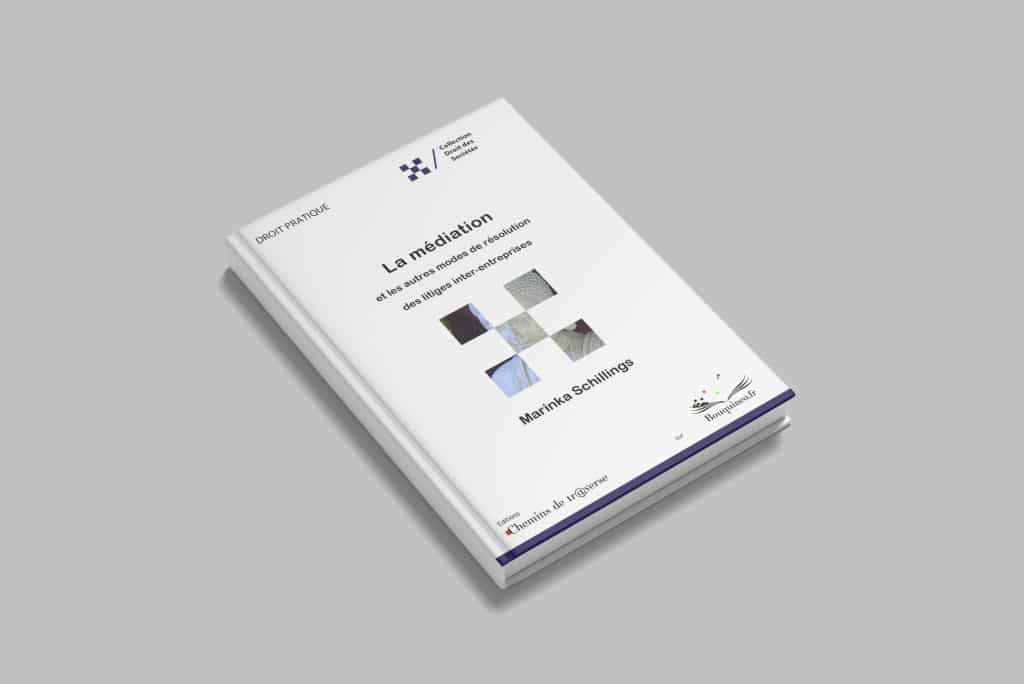Mediation

1. The development of mediation in French law
France introduced legislation on mediation in 1995 (Law no. 95-125 of 8 February 1995). Since then, mediation has taken off, albeit very slowly at first, thanks in particular to the creation of mediation centres. In recent years, the development of mediation as an alternative dispute resolution method has accelerated. This development is the result of both European and national rules.
Following extensive consultation with Member States on measures that could be implemented to encourage the use of mediation, the European Parliament and the Council of the European Union adopted Directive 2008/52/EC applicable to cross-border disputes in civil and commercial matters.
France transposed this directive with Order no. 2011-1540 of 16 November 2011, but has gone further in providing a legal framework for mediation. Recent reforms to the legal system in France, whatever the subject matter, reflect a real desire on the part of the French legislator to promote alternative dispute resolution methods, including mediation.
The French Code of Civil Procedure (CPC) now contains specific provisions on judicial mediation (articles 131-1 et seq. of the CPC) and contractual mediation (articles 1532 et seq. of the CPC). Judicial mediation may be ordered by the judge in the course of legal proceedings, if the parties accept this. Contractual mediation is initiated by the parties themselves.
Since 1 January 2016, professionals have also been obliged to provide consumers with the contact details of the consumer mediator in their economic sector (article L.612-1 of the French Consumer Code), enabling consumers to initiate a mediation process in the event of a dispute with a professional.
In addition, Law no. 2019-222 of 23 March 2019 introduced an obligation to attempt mediation, conciliation or a participatory procedure, before seizing the judicial court, for disputes with an amount at stake of less than € 5,000, or relating to a neighbourhood dispute (article 750-1 of the Code of Civil Procedure). This requirement was initially annulled by the Conseil d’Etat, the French Council of State, but was reintroduced into the law by the legislator, by Decree no. 2023-357 of 11 May 2023.
Finally, Decree no. 2023-686 of 29 July 2023 introduced the possibility of “chopping up” on-going legal proceedings in different parts. Under this new possibility, the parties may agree, during the course of proceedings, to submit one or more issues between them to the court for a decision, without submitting the dispute in its entirety (articles 807-1 to 807-3 of the CPC). The legislator’s idea is that once the parties have obtained a decision on some of the issues that have arisen between them, they can resolve the rest of their dispute amicably. Once the court decision has been obtained, the parties are encouraged to reach an amicable agreement, for example through mediation.
Although mediation has long been little-known, it is now playing an increasingly important role in the French legal system, due to several reforms in recent years. It is therefore essential to become familiar with this method of dispute resolution and to consider it more frequently for your disputes.
2. Characteristics of mediation in France
Mediation is a confidential dispute resolution process in which a neutral and independent third party – the mediator – intervenes between two or more parties to help them resolve their differences by facilitating the search for a negotiated solution, thus avoiding recourse to legal proceedings, or putting an end to proceedings that have already begun.
Its characteristics are defined in articles 21 et seq. of the Law of 8 February 1995.
Mediation may be contractual (articles 1530 to 1535 of the CPC) or judicial, ordered by the judge (articles 131-1 to 131-15 of the CPC). Although these two processes are distinct, they share a number of rules:
An objective and neutral mediator
The mediator must satisfy several requirements to guarantee his or her competence and independence.
The mediator must be truly external to the parties and should not have any ties with either of them.
During the mediation, the mediator ensures a balanced debate between the parties, respecting each party’s speaking time and preventing one party from gaining the upper hand the other. The mediator does not express an opinion in favour of either party; he or she remains totally neutral.
The mediator does not impose any decisions. He or she simply makes suggestions for the parties to consider. The mediator’s technical knowledge in a specific field may be highly valuable. Some areas (e.g. construction law, financial law, company law) often require highly technical discussions. A mediator who is a specialist in this area will ensure that the discussions are relevant and adequately tackle the issue.
A confidential process
Confidentiality provides a free space where the parties can express themselves and exchange ideas in an open and creative way.
This is why the mediator and all the other parties participating in the mediation must observe strict confidentiality regarding everything discussed and exchanged during the mediation process, unless the parties agree to waive confidentiality or when disclosure is necessary for the implementation of the solution reached during the mediation (article 21-3 of the Law of 8 February 1995).
Any comments or documents exchanged may not be used at a later date (particularly in the event of legal proceedings), subject to the same exceptions.
In addition, if the mediator meets with the parties separately, the mediator may bring up before one party the information that he has learned from the other party if he has obtained that party’s permission.
A clear process
Legal proceedings are uncertain in many respects, such as duration, cost, final outcome, enforcement of the final decision, etc. Mediation provides greater control over all these aspects.
The mediator sets an agenda in agreement with the parties. They may decide to meet the mediator together or separately. The length of each session can also be determined beforehand.
Generally, the mediation process is set for a two months’ period, but it can be extended with the agreement of all the parties. Sometimes mediation can be completed much faster than planned. In the case of judicial mediation, the initial duration of mediation may not exceed three months (article 131-3 of the CPC).
A solution that suits the parties
Once the parties have jointly identified the issues in dispute, the mediator helps them explore, in greater depth, the potential solutions that may be available, until they agree on the terms of a settlement agreement, or – more rarely – decide to abandon mediation to pursue their dispute through the courts.
If an agreement is reached between the parties, they decide on its wording. In this way, they can envisage new and innovative bespoke solutions that will be perfectly suited to their dispute.
The parties can then have this settlement approved by the judge (“homologation”) in the case of judicial mediation (article 131-12 of the CPC), or by referring the matter to the competent court in the case of contractual mediation (article 1565 of the CPC).
It is also possible to enforce this settlement without homologation if it is countersigned by the parties’ lawyers and provided with the executory clause that one of the parties can ask the court clerk to affix (article 1568 of the CPC).
If mediation is ultimately unsuccessful, legal proceedings will resume or will be initiated by one of the parties. The statute of limitations, which is suspended from the day on which the parties agree to mediation, starts running again (article 2238 of the French Civil Code).
The court will then rule without being influenced by what was said during the mediation, especially as its content is usually unknown to the court.
The role of the lawyer
Prior to mediation, the lawyer’s role is to advise the client whether or not to try mediation, depending on the circumstances of the case. This advice is not automatic; and will only be given if the case lends itself to it.
During the mediation process, it is essentially up to the client to speak. However, the lawyer is there to help them articulate their position, to help them come up with solutions, to moderate and generally to play a full advisory role.
The lawyer will thus help the client decide whether mediation is useful in a specific dispute, whether it should be continued or not, whether a separate meeting with the mediator is necessary, and whether the proposed solution is legally feasible…
Finally, at the end of the mediation process, it is the lawyer who will draft the settlement agreement and ensure that it is enforced. Since Decree no. 2022-245 of 25 February 2022, the parties’ lawyers may countersign the settlement agreement, thereby making it easier to obtain a writ of execution. In that case, it is no longer necessary to ask for the settlement agreement to be approved, but it may simply be brought before the court clerk’s office to affix the executory clause.
Why choose mediation?
Mediation is a less confrontational way of resolving disputes. It offers the possibility of :
- Renewing a broken dialogue
- Resolving disputes as good business partners
- Ensuring confidentiality
- Having more control over the solution that is found
- Controlling costs and duration
The assistance of a lawyer remains essential to ensure that mediation leads to a satisfactory outcome. The lawyer also ensures that the solution found by the parties is feasible and can be enforced.
The lawyers at Amstel & Seine will advise and support you during your mediation. Partner Marinka Schillings is also an accredited mediator at the Parisian Centre for Mediation and Arbitration (CMAP).
Parijs, 28 november 2023
Marinka SCHILLINGS
Avocat au Barreau de Paris
AMSTEL & SEINE Avocats
Médiateur agréé CMAP
marinka.schillings@amstelseine.com
Thom VERKUILEN
Avocat au Barreau de Paris
AMSTEL & SEINE Avocats
thom.verkuilen@amstelseine.com
If you have any questions about mediation in France, feel free to call us on +33 (0)1 85 09 34 80 or send an e-mail
